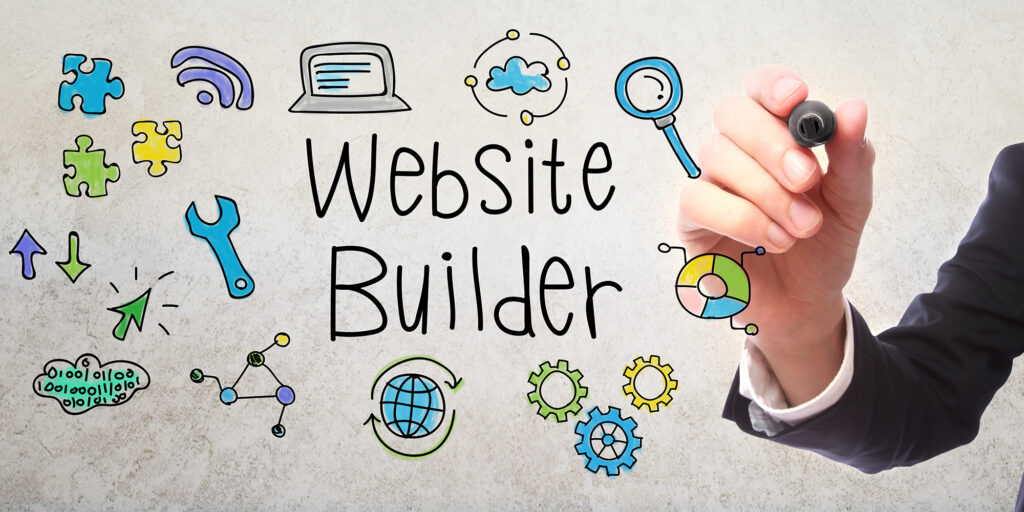Introduction
The internet has revolutionized the way we communicate, conduct business, and share information. With the rapid increase in online presence, there is a growing demand for user-friendly website builders that cater to various needs. In the following paragraphs, we will explore and compare four popular website builders: WordPress, GoDaddy, Wix, and Shopify. Each platform offers unique features and benefits, and we’ll provide an in-depth analysis to help you choose the right one for your needs.
1. WordPress
As one of the most popular content management systems (CMS) in the world, WordPress powers approximately 40% of all websites. It comes in two flavors: WordPress.org, which is an open-source, self-hosted platform, and WordPress.com, a more user-friendly hosted version. WordPress is widely known for its flexibility, extensive customization options, and large plugin library.
Pros:
- Flexibility: WordPress offers a wide range of themes and plugins, allowing users to create a unique, tailor-made website.
- Extensive community support: With a vast user base, there’s a wealth of information and resources available through forums, tutorials, and blogs.
- SEO-friendly: WordPress is designed to be search engine friendly, and various plugins further enhance its SEO capabilities.
Cons:
- Steeper learning curve: Although WordPress offers a more extensive range of features, it can be more challenging for beginners to navigate.
- Maintenance: As a self-hosted platform, users are responsible for website security, backups, and updates.
2. GoDaddy
GoDaddy is primarily known as a domain registrar and web hosting provider. However, they also offer a website builder called GoDaddy Website Builder. This platform is designed for ease of use, with a drag-and-drop interface and a selection of templates to help users create a website quickly.
Pros:
- Ease of use: GoDaddy’s website builder is user-friendly, with a simple interface that even beginners can navigate.
- Integrated services: As a web hosting provider and domain registrar, GoDaddy offers seamless integration between their services.
- Affordable pricing: GoDaddy’s plans are competitively priced, making it an attractive option for those on a budget.
Cons:
- Limited customization: While GoDaddy offers various templates, users may find customization options to be limited compared to other platforms.
- Lack of third-party plugins: GoDaddy does not support third-party plugins, which may limit functionality.
3. Wix
Wix is a cloud-based website builder that offers a user-friendly drag-and-drop interface and a vast collection of templates. It is designed for users with little to no coding experience and offers various features, including e-commerce capabilities and app integration.
Pros:
- Intuitive interface: Wix’s drag-and-drop editor makes it easy for users to create and customize their website.
- Wide range of templates: Wix offers over 500 professionally designed templates, catering to various industries and styles.
- App market: Users can add additional functionality to their websites through Wix’s app market, which offers both free and paid apps.
Cons:
- Limited flexibility: Wix websites are less flexible than WordPress sites and may not be suitable for more complex projects.
- Advertisements: Free plans display Wix-branded advertisements on the user’s website, which may detract from the site’s professionalism.
4. Shopify
Shopify is a dedicated e-commerce platform, designed to help businesses create and manage online stores. It offers an extensive range of tools and features, including payment processing, inventory management, and marketing capabilities.
Pros:
- Comprehensive e-commerce solution: Shopify provides a wide range of tools for managing an online store, from product listings to shipping and payment options.
- App ecosystem: The Shopify App Store offers numerous apps and integrations that can enhance the functionality of an online store.
- Scalability: Shopify is designed to grow with your business, offering plans suitable for small startups to large enterprises.
Cons:
- Limited design customization: While Shopify offers a selection of themes, users may find customization options to be more limited compared to WordPress.
- Transaction fees: Shopify charges a transaction fee for each sale made on the platform, which may impact profit margins.
- App ecosystem: The Shopify App Store offers numerous apps and integrations that can enhance the functionality of an online store.
- Scalability: Shopify is designed to grow with your business, offering plans suitable for small startups to large enterprises.
Comparison: Choosing the Right Platform for Your Needs
Now that we have explored the features, pros, and cons of each platform, it’s time to determine which one is the right fit for your specific needs.
1. For Bloggers and Content Creators: WordPress
If your primary goal is to create a blog or content-rich website, WordPress is the ideal choice. Its extensive customization options and powerful SEO capabilities make it the perfect platform for content creators looking for flexibility and growth potential.
2. For Small Businesses and Personal Websites: Wix or GoDaddy
If you’re looking to create a simple website for a small business or personal use, Wix and GoDaddy are both excellent options. Both platforms offer user-friendly interfaces and a range of templates to choose from. Wix offers more customization options and a more extensive app market, while GoDaddy is more budget-friendly and offers seamless integration with its hosting and domain services.
3. For E-Commerce Businesses: Shopify
For those looking to create an online store, Shopify is the go-to platform. Its comprehensive e-commerce tools and scalable plans make it the ideal choice for businesses of all sizes. Although WordPress offers e-commerce capabilities through plugins like WooCommerce, Shopify’s dedicated e-commerce focus and extensive app ecosystem make it a more robust choice for online retailers.

Conclusion
Ultimately, the best website builder for your needs will depend on your goals and the specific features you require. WordPress is a versatile platform that offers maximum flexibility and customization, making it ideal for bloggers and content creators. Wix and GoDaddy provide user-friendly website building experiences, perfect for small businesses and personal websites. Meanwhile, Shopify is the top choice for e-commerce businesses, offering a comprehensive set of tools for managing an online store.
By considering your unique needs and the features offered by each platform, you can make an informed decision and choose the best website builder to bring your online vision to life.





